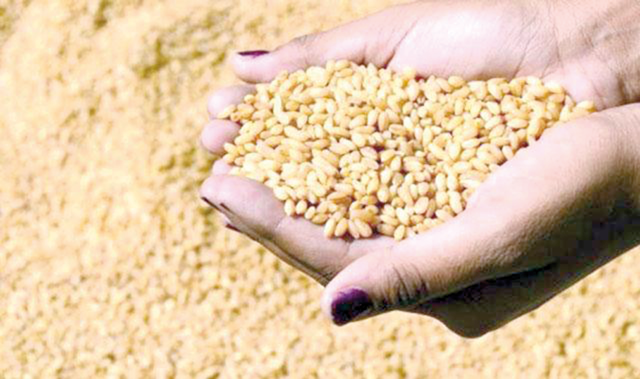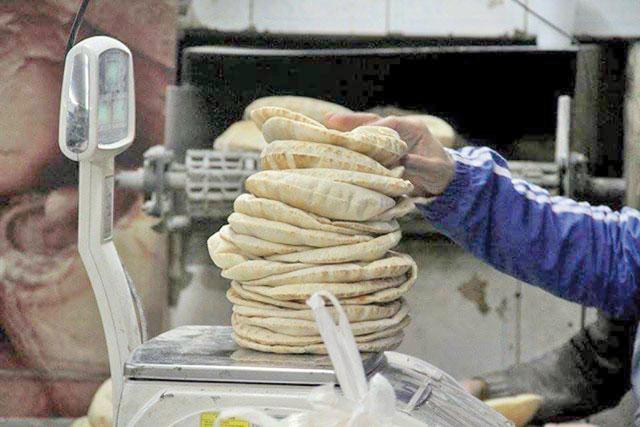You are here
Russia-Ukraine tensions will not impact Kingdom’s food security —stakeholders
By Batool Ghaith - Feb 13,2022 - Last updated at Feb 13,2022
AMMAN — The tense situation between Russia and Ukraine, “even in the event of a war between the countries, will not affect Jordan's food security”, said Chairman of the Jordan Chamber of Commerce (JCC) Nael Kabariti.
Kabariti emphasised that during the last two years, Jordan only imported wheat from Ukraine twice, and the current supply of wheat is from a non-Ukrainian source.
However, large amounts of oil that the Jordanian private sector imports, whether from traders or factories, comes from Ukraine, according to Kabariti.
Kabariti told The Jordan Times that the tension between Russia and Ukraine will have a direct and indirect impact on the Kingdom.
“We will have to change the source of oil and switch to other sources, which does not have a major effect as other sources are available. On the other hand, there will be an imbalance in the food system, as Russia and Ukraine are among the largest producers of grains, wheat, corn and soybean; therefore, any war between them will lead to an imbalance and a rise in the global stock market,” he said.
He also indicated that there will be a rise in oil, gas, freight and logistics prices, which will affect the economy in Jordan.
“The only negative effect will be price hikes, not the availability of materials,” Kabariti added, noting that Jordan has a stock of wheat and food materials that is sufficient for another 12 months.
Economist Hosam Ayesh noted that since Jordan imports from Russia and Ukraine, the Kingdom will be affected when imports stop or their prices increase.
“Jordan will be affected, like all countries around the world, by the rise in the prices of oil, as well as grains, wheat and oils, especially during the approaching month of Ramadan,” he told The Jordan Times over the phone.
Ayesh indicated that the tension between Russia and Ukraine and the price hikes will lead to higher inflation rates, as by the end of 2021 the inflation rate in Jordan was 1.35 per cent and doubled during the first month of 2022 to reach 2.46 per cent.
“The Jordanian government expected the inflation rate for 2022 to be 2.5 per cent, and this was achieved in the first month of the year, which suggests that inflation will be one of the main problems we face,” he noted.
According to Ayesh, high inflation rates will lead to rising bank interest rates in the local market.
Jordanian exports to Russia and Ukraine are very low compared with imports, but it is expected that they will witness a slight increase, Ayesh added.
The Ministry of Industry, Trade and Supply stated that most of the Kingdom’s imports of wheat are from Romania. These amounts constitute 90 per cent of the total quantities of wheat imported by the Kingdom annually.
Yanal Barmawi, ministry’s spokesperson, noted that Jordan imports barley from Australia, France, Germany and Romania.
Barmawi emphasised that there were no imports of wheat during 2021 or 2022 from Russia due to imposed export taxes on wheat, barley and corn.
There were also no imports from Ukraine during 2022, and “wheat imports from Ukraine during 2021 did not exceed 10 per cent, and imports of barley shifted to Australia and Argentina,” he said.
Barmawi highlighted that the Kingdom’s stock of wheat is sufficient for a period of 15 months.
According to the ministry, all contracts with companies supplying wheat and barley are “open and numerous”, and the companies are obligated to provide the supply. Any default or breach of these guarantees will result in confiscation of food materials or purchasing at the companies’ expense.
Related Articles
AMMAN — Russia’s decision to pull out of the Black Sea grain agreement combined with the global energy crisis will lead to a hike in grain p
AMMAN — As the Russia-Ukraine crisis unfolds, food security fears and uncertainty has increased among many in Jordan and the world, accordin
AMMAN — The Kingdom’s wheat storage is sufficient for 14 months, the government said on Wednesday, amid concerns of supply cut-offs as a res

















